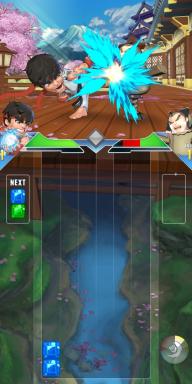“I won’t need it”: how to explain to a child why study so many subjects
Miscellaneous / / August 21, 2023
Learning tasks train thinking and help create an adequate picture of the world.
Many schoolchildren are not very willing to open part of the textbooks. They argue that biology or astronomy will definitely not be useful to them - there is nothing to waste time on them. We understand why it is worth studying subjects that are included in the secondary education program.
1. Mathematics, exact sciences
To the exact sciences, and especially to algebra and geometry, there are many complaints from those who consider themselves a humanist. Fortunately, almost no one objects to the ability to add, subtract, and multiply. Also, few people think that there is no point in studying proportions or calculating percentages.
These skills, for example, will be useful to those who keep track of their own finances. That is, almost everyone.
But not everyone agrees to solve quadratic equations. And the number of people who want to understand trigonometric rules or calculate the limits of functions is even smaller. And in vain: such tasks are great train the brainand also develop several important skills.
Ability to operate with abstract categories
Proportions or percentages can be easily represented and shown with examples. But the properties of algebraic functions or the rules for calculating derivatives imply abstract concepts. You can’t depict them on your fingers, you can’t explain them with the help of everyday examples. Therefore, in order to understand some mathematical sections, it is necessary to learn to think in abstract categories. This process can be difficult, but it also trains logical thinking very well.
Developed logic will help to find the right solutions in a variety of situations. For example, don't fall for manipulator tricks. One of these is the principle false dichotomy. This is when they try to convince you that in a difficult situation there are only two ways out: unpleasant and the one to which the manipulators are pushing. But in fact, this is a logical error and there will always be other solutions.
It might look like this: “If you buy a refrigerator from us, then you are a good person, because we will donate part of the proceeds to charity. Well, let it not have all the functions you need. If you don't buy it, then you are against charity. You don’t want to feel soulless and callous?”
You are shown only two options: buy the wrong refrigerator or admit that you not very good Human. Although in reality there are many more options. For example, you can choose equipment elsewhere, and if you see fit, support any charitable foundation on your own. This is a rough example, sometimes manipulators are much more subtle. But logic will help them not to succumb.
Ability to prioritize and structure
At first glance, any section of a mathematics textbook may seem like a collection of random terms and rules. But then it becomes clear that there are strictly defined relationships between all symbols and concepts.
We can say that each section mathematics is a multi-level game with clear rules. If you understand them, you can see a beautiful and complex structure in which each element is in its place and interacts with others. And it becomes clear exactly how he does it.
This skill helps to see the main and the secondary in a variety of situations - life and work.
And literally put everything on the shelves. For example, write an article, abstract for a report, or just a post on social networks that will not stop reading after the first paragraph. Or prepare arguments for a conversation with the boss about salary increase and think about how best to build a dialogue. In all these issues, the ability to see the main thing and form a structure will greatly save time and effort and help you reach your goal.
Mindfulness skill
Many mathematical problems are solved in several stages. And on each of them you need to be careful not to make mistakes. So, for example, it is necessary to act when shortening long and complex algebraic expressions.
Such tasks help to maintain concentration and not lose focus. Well, if an error appears somewhere in the calculations, you will need to re-check your actions, find the wrong step and correct it. This process is also great for training skills. concentration and thinking.
The ability not to get stuck in the middle of the path, not to get confused, not to turn sour, to persevere towards the goal is another important skill. Of course, it is great to develop sports. But mathematical tasks can also be considered an excellent intellectual and personal simulator.
2. Literature, humanitarian subjects
These are items that allow you to develop emotional intellect. On the Web, they often regret that no one teaches children to understand emotions, and without such a skill it is difficult to communicate and build relationships. I would like to object: they teach. At school, at the lessons of literature unloved by many. Here are some other important skills that the latter help develop.
The ability to put yourself in another person's shoes
In classical works, we see not just a retelling of the events that happened to the characters. The authors describe in detail what the characters feel, how these experiences push them to certain actions.
Moreover, the internal monologues of the characters are described in great detail - so that it is very difficult not to understand them. We can look at what is happening through the eyes of a literary character and experience the same emotions as him.
Literally put yourself in his place. And understand why he made one and not another choice.
Yes, works from the school curriculum were written more than a century, or even two years ago. But the foundations of the human psyche, the basic principles of its structure have not changed. We also rejoice, sad, experience pain and rage. The ability to look at the situation through the eyes of a literary hero can be applied in real life. For example, try to look at a family conflict from the point of view of a partner and understand what he lacks in communication.
The ability to see the causes and consequences of events
This skill can be developed on literature lessons and history. They help to see not only a specific situation, but also to look at what preceded it and what happened after. People change little, and you can see certain causal relationships between the events that happen to them. And that means learning something from the experience of predecessors, and not stuffing your own bumps.
For example, if you put off a difficult decision for a long time, close your eyes to the problem and wait for it to somehow resolve itself, then everything can end in disaster. This clearly shows the experience of the heroes of Chekhov's The Cherry Orchard. Therefore, if a difficult situation arises in real life, you should immediately take on its solution, even if a good way out is not yet visible.
Ability to defend one's point of view
The same piece of literature can lead people to very different conclusions. And book or historical heroes can also be evaluated in a completely different way than it is written in the textbook.
For example, for one, Chatsky from Woe from Wit is a guy who seeks to form his own opinion about everything, listens first of all to himself and does not recognize imposed authorities. The same is said about him in the textbook. And for another, the same hero is a narcissistic narcissist who demands attention and admiration, but at the same time did not find time to ask how his beloved girl lived without him. This is not mentioned in the textbook. But in the classroom, and especially in composition, you can try to justify this point of view.
To do this, you will have to look for arguments that will be difficult to challenge.
It happens that the teacher does not welcome a point of view that is different from the textbook. This is also a good opportunity to hone your argument and learn how to respond to objections. Such a skill will definitely come in handy, because in life not everyone will share your position. Therefore, it is worth practicing to defend your views. Yes, at school sometimes you can get not the highest mark for this. But the experience of participating in discussions will remain forever.
3. Natural science subjects
Biology, chemistry, geography help to better understand who we are and in what world we live. Astronomy and physics can be added to the same list - they also talk about the structure of the Universe and the laws by which it exists.
Perhaps someone will object: in our daily life, little will change if we suddenly forget that the Earth is like a ball. After all, it makes no difference whether you ride a bicycle on a plane or on the surface of a huge sphere. And the rest of the knowledge is generally practically useless.
We think only about daily affairs that concern each person personally. They do not seem to be influenced by the discoveries of geneticists or the findings of paleontologists. We don't care how many cells are occupied in the Periodic Table of chemical elements and what happens at the other end universe.
On the one hand, we really don't need many facts from textbooks. We will quickly forget them and never remember them again. But any scientific information adds something new to our understanding of the universe.
We can forget the fact itself, but the picture of the world will remain forever.
For example, one person learned how vaccines work. The other one missed the lessons on this. And it is much easier to convince him that any vaccine is the product of a conspiracy of bad people. And what do vaccinations it is impossible, because all diseases are only from them. For the first, even if he has forgotten many specific facts, it will be almost impossible to inspire such a thing.
One more example. If water boils, its temperature is always 100 °C (at the level of the world ocean - in the mountains it is value below). And it doesn’t matter if it boils strongly or not: its temperature Will not change. And the eggs will be ready in the same time anyway. So, you can safely reduce the heat - so that the boiling process is weak, but does not stop. And save electricity. And the knowledge from the course of physics helped us to understand this.
It seems to be a trifle. But there are many such trifles around, and it is difficult to say when we need another fact from the school curriculum. Therefore, it is worth considering that there is no superfluous knowledge.
Read also🧐
- TEST: How well do you remember the school curriculum?
- How to reduce stress in a student at the beginning of the school year
- 8 tasks from the school math olympiad that are not so easy to solve



